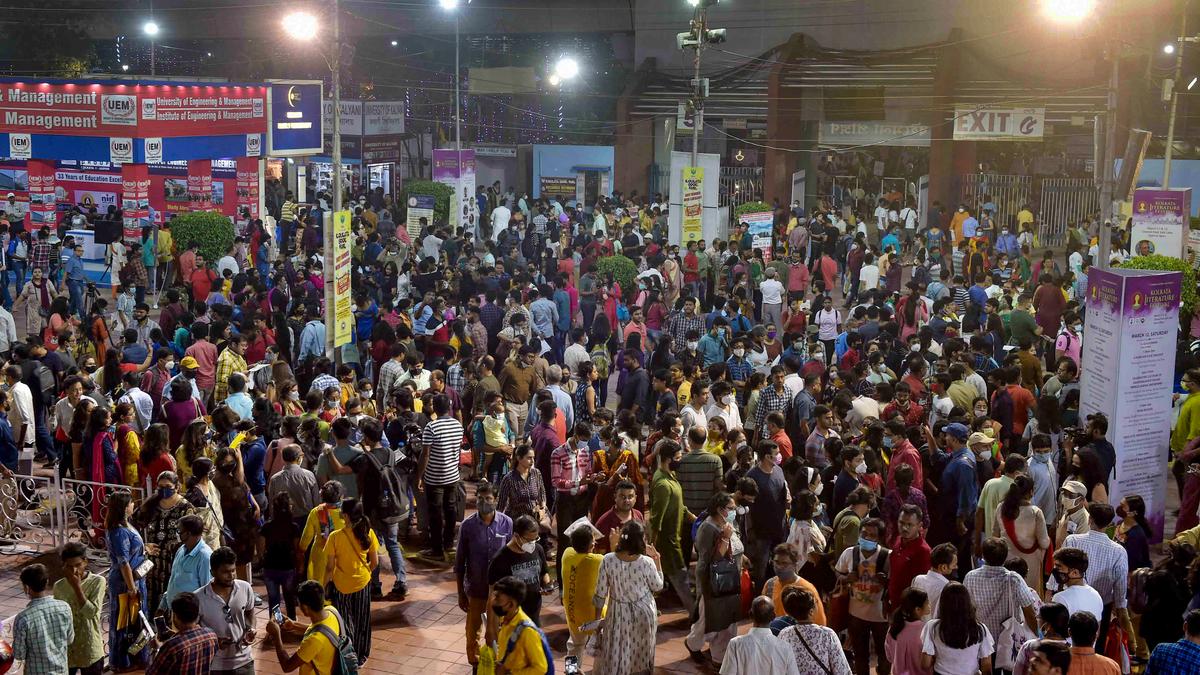Kolkata Book Fair Controversy: VHP Wins a Stall After Court Dismissal
The 48th International Kolkata Book Fair has been embroiled in controversy following the initial rejection and subsequent acceptance of a Vishva Hindu Parishad (VHP) stall application. This unexpected turn of events has sparked debate about freedom of expression, censorship and the fair's selection criteria. Get ready for a wild ride through the twists and turns of this captivating saga!
The VHP's Court Battle and Surprise Win
The VHP initially sought a stall to promote their organization, an application the Publishers and Booksellers Guild initially rejected. This rejection prompted a legal challenge, with the VHP petitioning the Calcutta High Court. The court's decision, dismissing the VHP's plea, deemed that denying the stall did not infringe on the organization's freedom of speech or business rights. The court ruled that the VHP was free to publish its views and materials regardless of stall allocation at the book fair.
Unexpected Allotment: A Sudden Twist in the Tale
Despite this legal setback, a surprising twist occurred. Just one day after the court ruling, the Guild unexpectedly allotted a stall to the VHP, but under a different name. The VHP was granted a 200 sq ft space, not the initially requested 700 sq ft, to showcase their monthly magazine, Visva Hindu Varta. This last-minute decision raises eyebrows about potential back-channel negotiations between the organizers and the VHP.
The book fair's allocation of stall number 249, while unexpected, opens a new chapter in this story. Could this outcome hint at more behind-the-scenes happenings?
The Guild's Stance and Contradictory Decisions
The Publishers and Booksellers Guild, organizers of the book fair, have faced sharp criticism for its inconsistent approach to stall allocation. They initially justified rejecting applications from organizations by arguing the stalls were intended for booksellers, publishers and magazines only. However, multiple organizations, including the Ahmadiyya Muslim Jamaat and the Indian Football Association, also had stalls, pointing towards contradictions and apparent double standards in the guild's guidelines. This questionable logic sparked protest among several groups.
Double Standards and the APDR's Case
This contradiction became even more apparent when compared to the case of the Association for Protection of Democratic Rights (APDR), a human rights organization with its own publications. The Guild also denied them a stall, prompting protest and their own unsuccessful court challenge. The court's dismissal of APDR’s petition mirrors its rejection of VHP’s request, highlighting a perceived inconsistent approach from the Guild.
This case underscores issues related to free speech, equitable representation and transparency in fair-based allocation procedures. The lack of clarity raises concerns regarding the selection process and its implications for freedom of expression.
Political Turmoil and the Book Fair
The incident involving VHP sparked a debate about the intertwining of politics, cultural events and freedoms of expression. Some activists believe that political pressure influenced the unexpected allotment of a stall to VHP.
Navigating Free Speech and Fair Allocation
The Kolkata Book Fair incident has ignited discussion on the delicate balance between free expression and the organizational rules of events. Organizers face the challenge of providing space for diverse views while ensuring a structured allocation procedure. Moving forward, clearer and more transparent guidelines for the allocation of book fair stalls is likely needed. This case shows the importance of developing policies that consider political contexts and promote diverse participation while fairly managing a large-scale event.
Take Away Points
- The VHP's journey to secure a stall at the Kolkata Book Fair was initially rejected, legally challenged and unexpectedly accepted.
- The Publishers and Booksellers Guild’s inconsistent stall allocation approach drew sharp criticism, sparking debate regarding fair representation and freedoms of expression.
- This event highlights potential future discussions regarding transparent criteria, application guidelines and a conflict resolution procedure for large-scale events.
- The implications of this case reach far beyond the event itself, including discussion around free speech and event organization protocols.









